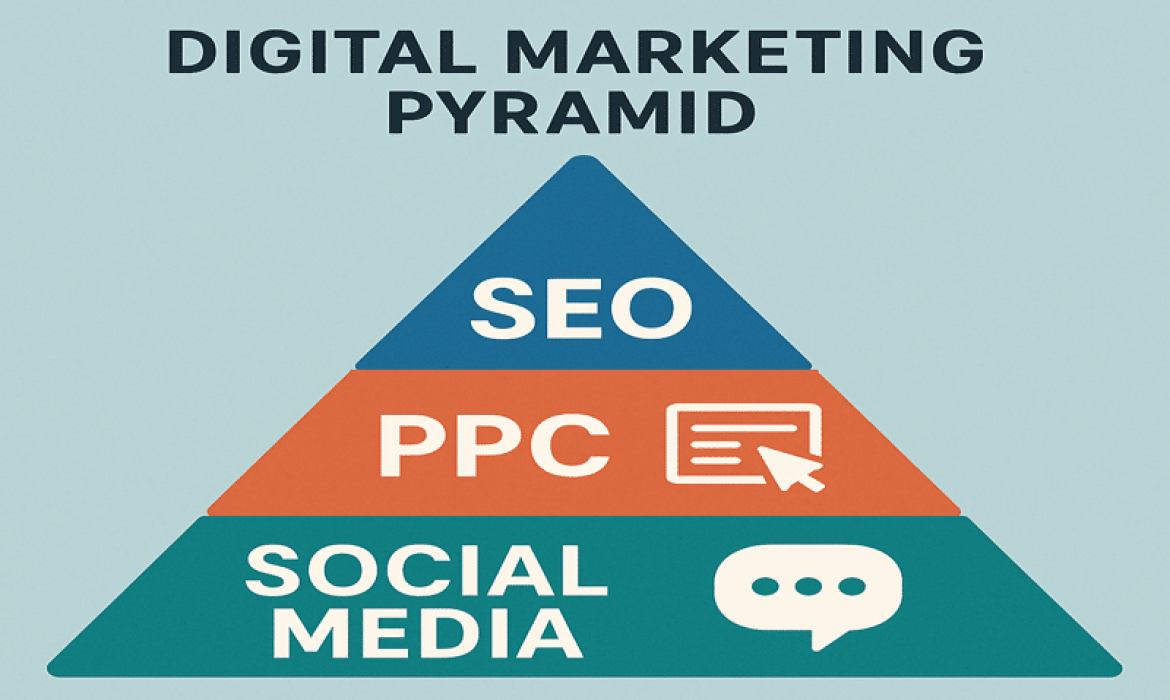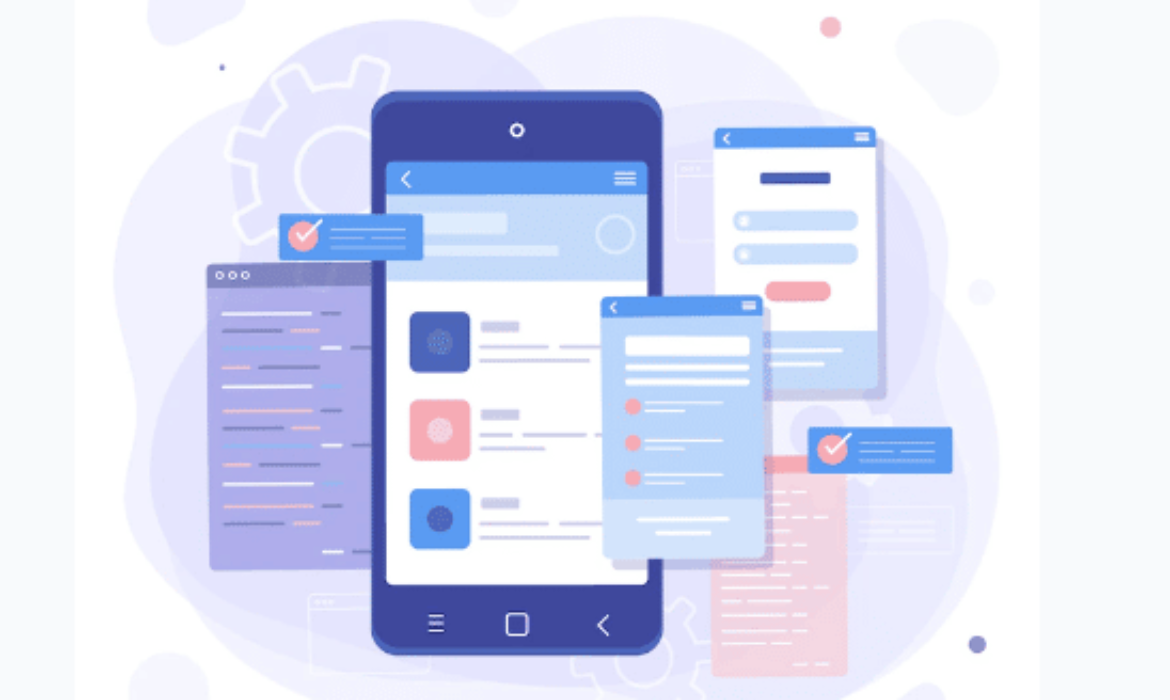UX Meets SEO: How Great Web Design Can Skyrocket Your Search Rankings!
A few years ago, SEO used to be about keywords, backlinks, and cramming as many details as possible in a webpage. However, nowadays, everything is totally different. Google has become smarter, a lot smarter. It does not rank websites according to what is contained on the page only. It is now very keen to know how individuals are experiencing when they are on your site.
Here is the place where UX, or user experience, comes in.
SEO is not only about appearing in search results anymore, but it is also about satisfying the user when they open your site. When your site is slow, disoriented, or disorganized, the visitors will not be able to hang around. And guess what? Google notices.
That is the reason why UX and SEO are no longer distinct. They are the ideal couple, and when combined, your online site can rise to the top quicker than you would think.
What Is User Experience (UX) in Web Design?
To put it simply, UX refers to the ease, smoothness, and pleasure with which one may use your website. Imagine a case of entering a shop. When there is a sloppy aisle, difficult-to-read signs, and staff turning a deaf ear to you, you will just drop out. A website works the same way.
Content navigation is easy with good UX. Bad UX makes users bounce.
Key Elements of UX
- Page hierarchy and navigation: Do menus make sense?
- Visual readability: Can fonts be read? Are the colors comfortable to the eyes?
- Page speed: Can the site be loaded within one or two seconds?
- Interaction design: Can it be an easy tap or a click?
- Mobile experience: Is the site resized to all screen sizes?
- Accessibility: Is it easy to navigate for all users who have not been given special attention?
UX may sound like design-only, but it affects SEO in much larger ways than most individuals may realize.
How UX Directly Impacts SEO
1. User Engagement Signals
Google monitors user behavior on your site. And will they abide and venture or depart in a few seconds? Good UX helps visitors continue reading, clicking, and navigating, generating favorable indicators such as increased dwell time, reduced bounces, and increased pages per visit. These are cues that indicate that your site is worth something to Google.
- Page Speed and Core Web Vitals.
The Core Web Vitals at Google estimate the speed and stability of your site to users:
- LCP (Largest Contentful Paint) – the speed of the main content.
- FID (First Input Delay) – the responsiveness of the site.
- CLS (Cumulative Layout Shift) – the stability of the layout.
When your site loads slowly or vibrates, you lose in your rankings.
3. Mobile-Friendly Design
Google uses mobile-first indexing because most of the searches occur on mobile. In other words, when your mobile site is poor, your SEO is poor.
4. Clear Navigation Helps Google Crawl Better
In case your site structure is easy and sensible:
- Users find things quickly.
- Googlebot knows better what is on your pages.
- Your material is indexed and ranked quickly.
Why Good Web Design Improves Search Rankings
1. Makes life easier and generates leads
Good UX removes confusion. Visitors are well aware of what they need to click, what they need to read further, and how to proceed. This raises conversions, and satisfied users result in improved SEO.
2. Develops trust and credibility
Research indicates that users make their decisions about the credibility of websites in a few seconds. Instant trust is created by clear images, adequate spacing, and well-balanced colors. A reputable site is bound to receive repeat traffic, increased interaction, and referrals.
3. Favors improved content interaction
The best content would not work if the layout is a mess. Good UX is also characterized by brief paragraphs, unchallenging headings, bullet points, and neat spacing. This will assist the users in reading longer and more, further increasing rankings.
4. Enhances site architecture
Surprisingly orderly design enhances user experience. It also strengthens your internal linking process, as it can make Google perceive your content hierarchy.
UX Design Elements That Boost SEO
Fast, Lightweight Pages
To increase the speed of loading, compress images, cache, minify bulky scripts, and lazy load. Google has one of the largest ranking factors for speed.
Mobile-Responsive Layouts
Responsive design makes the text not small, makes it easy to tap buttons, and makes the menus clean and fit any screen. This will be critical to the success of SEO since mobile traffic is the dominant one.
Scannable Content Layouts
The most successful pages can be skimmed. Have descriptive headings, spacing, and paragraphs. This enables users (as well as Google) to know what your page is all about in a very short period of time.
Crystal-Clear Navigation
Menus should feel natural. Breadcrumbs assist the visitor in keeping track of his or her position. The less confusion = the longer the sessions, and the higher the rankings.
Visual Stability
Prevent non-advertising layout shifts, image loading delays, etc.
The stable designs enhance your Core Web Vitals score and maintain calm among the visitors.
Accessibility Enhancements
Basic changes, such as alt text, the appropriate color contrast, and readable fonts, not only assist more users but also enhance SEO activities.
How to Combine SEO Strategy With UX Design
Step 1 – Start With User Intent
Pay attention to the things that users search for and why. Each page is supposed to respond to a definite question.
Step 2 – Design a Clean, Conversion-Friendly Design.
Locate information in the expected place for the users. Minimize complications in CTAs.
Step 3 – Technical SEO Optimization + Core Web Vitals.
This involves optimization of the server, optimized media, and optimized JavaScript. The combination of them enhances UX and SEO.
Step 4 – Have SEO-Friendly Navigation.
Use simple URLs, internal links, and clear menus that allow the user to navigate through the pages.
Step 5 – Test the Experience on a regular basis.
Test heatmaps, A/B test, and study the real behavior of the users. Minor adjustments tend to yield major outcomes.
FAQs
Q: What is the impact of UX on SEO ranking?
A: The UX determines the duration of stay, ease of navigation, and speed with which your pages open. The engagement signals have direct impacts on rankings.
Q: What is the UX factor that matters the most regarding SEO?
A: The strongest ranking factors are currently speed and mobile friendliness.
Q: Will a redesign help me to increase my SEO?
A: Absolutely. A new design is better in terms of navigation, content, and speed, which are all key to ranking high.
Q: Is Google officially acknowledging that UX is important with regard to SEO?
A: Yes. The adoption of such features as the Core Web Vitals and mobile-first indexing indicates that UX has become part of SEO.
Q: How frequently do I need to refresh my website design?
A: Once every 2-3 years is recommended, or even earlier in case the user behavior or design trends change.
Conclusion
Keywords and backlinks are no longer important in SEO, but it is more about creating a site that people would like to use. Google rewards you by making you much more visible when your site loads fast, looks clean, is easy to navigate, and provides solutions to real user needs.
Simply put: Good UX = Better SEO = Higher Ranking.
Whether you are willing to create a website that is user-friendly and Google-like, the professionals at Geek Informatic and Technologies Pvt. Ltd. can assist you. We develop an effective, search engine-optimized design that will create tangible results.
Breaking Down the Digital Marketing Pyramid: SEO, PPC, Social Media & Beyond
Digital marketing today is anything but one-dimensional. One strategy doesn’t cut it. One platform doesn’t carry the weight. One campaign doesn’t seal the deal. That’s where the idea of the digital marketing pyramid comes in. Think of it as a layered structure, with each level doing its job to support the next.
At the base, there’s SEO. Then comes PPC, followed by social media, email, and all the stuff that brings it all together. It’s not just a strategy — it’s a system. Let’s break this pyramid down piece by piece. You’ll see how each level helps businesses grow stronger, louder, and smarter online.
Everything Starts With a Solid SEO Foundation
Let’s start at the bottom — because that’s where it all begins. Search engine optimization, or SEO, is the backbone of digital marketing. It’s what gets your website found when people go searching. No tricks. Just visibility.
If your business isn’t showing up on Google, you’re invisible to a lot of potential customers. And SEO is how you fix that. But it’s not just throwing in a few keywords and hoping for the best.
Real SEO work involves:
- Researching what your audience is actually typing into Google
- Writing content that answers real questions
- Ensure your website loads fast and works on phones
- Getting other reputable websites to link back to you
There’s also technical stuff — like optimizing your site’s structure so Google can crawl and understand it. SEO doesn’t give you overnight results. But the payoff is long-term. Once your content ranks, it can keep bringing in traffic for months — even years.
That’s why SEO forms the base of the pyramid. You build here first. Everything else stacks on top.
PPC: When You Need Fast, Targeted Results
While SEO takes time, PPC is more like flipping a switch. Pay-per-click advertising lets you skip the line. You bid on selected keywords, and your ad appears right at the top of Google, even above the organic search results.
But here’s the catch — you pay for every click. That means your strategy needs to be tight. You don’t want to blow your budget on empty traffic. Every click should have a purpose.
Here’s what makes PPC powerful:
- You choose who sees your ads
- You control the daily budget
- You can test different headlines and offers
- You get instant data to see what’s working
Platforms, including Google Ads and Bing Ads, are popular. But PPC also lives on Facebook, Instagram, LinkedIn, and even YouTube.
PPC works best when paired with strong SEO. While SEO slowly builds trust with search engines, PPC gives you immediate visibility. It’s like planting seeds and watering them while also buying fresh fruit from the store — smart brands do both.
Social Media: The Middle of the Pyramid and the Heartbeat of the Brand
Now we move to the middle layer. The one that’s most public. Most dynamic. And often, the most misunderstood. Social media!
This isn’t just about posting pretty pictures or tweeting clever quotes. Social media is where brands go to build personality, create loyalty, and start real conversations.
Each platform has its own vibe. That matters.
- Instagram is all about visuals, reels, and lifestyle
- Facebook is where communities form
- Twitter (or X) is great for fast updates and reactions
- LinkedIn is for thought leadership and networking
- TikTok favors creativity and spontaneity
Social media isn’t about being everywhere. It’s about being where your audience actually spends their time.
The key to success?
- Post consistently (not constantly)
- Respond to comments and messages
- Use video — it performs better across all platforms
- Stay real and human (no one likes robotic content)
And here’s the truth — followers don’t equal customers. But engagement? That does. People support brands they feel connected to.
Social media puts a face to your business. It makes you relatable. And in today’s world, that counts more than ever.
Email Marketing: Quiet, Powerful, and Seriously Underused
Most people scroll past ads. They skip posts. But email? They check it. Daily. Sometimes hourly. That’s why email marketing is still one of the most reliable tools in digital marketing. And yet, so many businesses sleep on it.
Emails aren’t just for promotions. They’re for updates. News. Value. Here’s what a good email campaign should do:
- Provide something useful (a tip, an offer, a reminder)
- Be short and easy to read
- Looks good on phones
- Lead people to take action (click, reply, shop, sign up)
It’s not about blasting your list every day. It’s about showing up with relevance. Smart email strategies segment audiences. They personalize messages. And they deliver the right message at the right time. Done right, email builds relationships. And those relationships convert.
Influencer Marketing: Trust That Can’t Be Bought — But Can Be Shared
People trust people. Not ads. Not logos. Not corporations. That’s why influencer marketing is growing so fast. When people follow and share your product, it feels authentic.
But here’s the trick — don’t chase vanity numbers. A beauty influencer with 3 million followers won’t sell your tech gadget. But a niche creator with 30,000 loyal fans might.
Micro-influencers often have better engagement. Their audience is tighter, more trusting, and more likely to act.
To make influencer partnerships work:
- Find creators aligned with your brand
- Let them tell the story in their voice
- Avoid over-scripting the message
- Measure the impact (clicks, traffic, mentions)
This layer of the pyramid isn’t just about reach. It’s about trust. And trust is the hardest thing to buy online.
Data and Analytics: The Top Layer That Holds It Together
All of this means nothing if you don’t track what’s working. Analytics sits at the top of the pyramid — not because it’s the flashiest, but because it helps every other layer perform better.
Without data, you’re just guessing.
Use it to answer questions like:
- Which blog posts bring the most traffic?
- Which ad campaign converts the best?
- When do people open your emails?
- Where are your visitors coming from?
Tools like Google Analytics, Facebook Insights, and heatmaps help you see the real picture. But it’s not about drowning in numbers. Focus on the data that ties back to business goals.
Want more leads? Watch your conversion rate. Want brand awareness? Measure impressions and shares. Analytics closes the loop. It shows what to improve, what to cut, and what to double down on.
This Pyramid Doesn’t Stand Still
Here’s something no one tells you — this pyramid shifts. New platforms emerge. Old tactics die. Algorithms change. People change. That means your strategy needs to move, too.
What should you watch next?
- Voice search is picking up speed
- Short-form video is taking over
- AI-driven content tools are everywhere
- Customers expect faster, more personal experiences
You don’t need to chase every trend. But you do need to adapt and evolve. What worked six months ago might not work now. And that’s okay — the pyramid is flexible. That’s the point.
The Geek Tech Approach: Strategy That Builds Up, Not Out
At Geek Tech, digital marketing isn’t a guessing game. Our team believes in building from the ground up. Solid SEO. Smart PPC. Engaging social content. Powerful email campaigns. And always tracking the results.
We don’t use shortcuts. Our experts use real strategies that deliver real growth. If you’re serious about your digital presence, you need a team that understands every layer of this pyramid — and how to make it work for your business.
In The End
Here’s the truth. You can’t build a strong online presence on one tactic alone. Not anymore. The digital space is too loud, too fast, and too competitive. But when you build layer by layer, using strategies that actually talk to each other, that’s when the results start to show.
Strong SEO brings traffic. Smart PPC brings visibility. Relatable social content builds trust. Clear emails keep customers close. And data helps you improve it all. That’s the pyramid. And once you build it right, you won’t just be online — you’ll stand out.
ChatGPT Revolution: How ChatGPT Integration Can Help SEO?
ChatGPT tool is a newly launched model by a renowned company OpenAI. It is software that generates content by using Artificial Intelligence. Since content is the most crucial thing for SEO practice to achieve the desired results, incorporating the use of ChatGPT might be of some use. Many professionals in the SEO industry need a clear idea about its benefits for their field. .
Therefore, the ChatGPT revolution can be experienced by many SEO professionals. But as the tool is new, most people are not aware of it. We have brought this blog to clear your doubts and show you how it can help you. Without any delay, let’s get into more and see how ChatGPT integration in SEO can affect the results.
What Is ChatGPT?
ChatGPT is a chatbot, where GPT means Generative Pre-trained Transformer. It was developed by OpenAI, an Artificial Intelligence research lab based in San Francisco. Before getting into the integration of ChatGPT and SEO, let’s learn some more about ChatGPT!
Definition
OpenAI introduced the ChatGPT, which is an optimised language model for dialogue that interacts in a conversational manner. The chatbot quickly collects attention to detailed responses and effectively provides the answers based on its knowledge domain.
Vital Information
Below are some important details about the ChatGPT AI software:
AUTHOR: OpenAI
RELEASE DATE: 30 November 2022
MODEL TYPE: Artificial Intelligence Chatbot
WEBSITE: https://chat.openai.com/
Methods
OpenAI trained the ChatGPT model with the help of the RLHF (Reinforcement Learning from Human Feedback) method. In addition to this, the data collection setup is unique for this software. An initial model was trained with fine-tuning that included human AI trainers.
The human AI trainers provided the conversations where they acted as both sides: the AI assistant and the user. Besides, the trainers also have access to model-written suggestions. It helped in composing their responses. One more thing to add is that ChatGPT is trained on an Azure AI supercomputing infrastructure.
Why Can ChatGPT Integration In SEO Be A Revolution?
ChatGPT is an AI tool also based on the Natural Language Processing model that generates the answers interactively. In SEO, AI tools help in optimising and fastening the work. Here is more about how generative language models are helpful in SEO.
Generative Language Models In SEO
Generative language models like ChatGPT enable the users to generate content for various purposes that can be used in SEO. Generally, the content generated with the AI tool also contains keywords.
Undoubtedly, SEO is constantly changing and needs real knowledge of the search engine. Besides, the understanding of website ranking factors is also vital. Content generated with AI tools can help in improving the search engine rank of the websites.
Some Text Generation Examples
The significant strength of text generation tools is not limited to providing better writing pieces. It also gives the desired results faster and helps the content team of big businesses. Here are a few examples that are included in the text generation:
Product Description
Users can get the content for products and categories of product descriptions with the help of a generative language model.
FAQ Generation
The Natural Language Processing model can search for the most relevant question for specific content and share it with humans.
Intro Draft
Using the selected keywords, you can use Natural Language Processing models to generate an intro for a new content piece.
Rewriting
Lastly, rewriting is an example of using Natural Language Processing tools. You can use the model to rewrite the more appealing content version.
Why are AI tools good for SEO?
SEO is a challenging task for many professional SEO experts. The main reason behind the difficulty is continuously updating search engines and ranking systems with time. Thus, the practices to rank better also change. As a content marketer, your aim will always be to rank your content higher on search engines.
AI tools like ChatGPT help simplify the SEO work. Usually, AI SEO tools use Machine Learning and Natural Language Processing algorithms. These are also used by search engines like Google to understand user intent and web content better. Hence, they help get the signals that web crawlers want to search. Besides, they work to be on the top of the Search Engine Results Page.
Significant Advantages of ChatGPT for SEO
ChatGPT revolution can bring many benefits for SEO. Here are some common advantages that different users experienced trying the recently launched ChatGPT model:
Identify and give relevant keywords
By using ChatGPT, you can quickly conduct keyword research. To do the research, you can open this chatbot, enter a few keywords, and wait for related keywords to appear.
Check for spelling and grammatical errors
ChatGPT is a model that improves writing style and quality by giving suggestions. Besides, the chat can help auto-correct spelling and grammar mistakes. It will help in providing error-free content.
Construct AI-powered customer support
Effective customer service is crucial for business success. Besides, it helps customer satisfaction, most importantly when available 24/7. Generating the content with the help of chatbots may do various linguistic tasks like translating, paraphrasing, answering queries, etc.
Generate creative content
Last but not least, the incredible advantage of chatbots is generating creative content. The AI tools know how to use words in an appealing way. It comes under the main SEO strategy to increase organic traffic. Besides, it helps earn the readers’ and Google’s trust, as user intent greatly matters in SEO.
Disadvantages of ChatGPT
Here are some common disadvantages of the ChatGPT model:
Recent events are unknown
A main disadvantage of the ChatGPT model is the lack of daily updates. It contains the data generally based on the before events. Thus, if you want this chatbot to generate content according to recent facts, you must need an alternate solution.
Possibility of incorrect and biassed results
Remember that ChatGPT is an AI tool and can not replace human intelligence. So, there is no guarantee that it will provide 100% accurate results every time. It means you don’t need to rely completely on this tool.
The tool is new and still under research
Another main disadvantage of ChatGPT is that it is a newly launched tool by OpenAI. It does have incredible benefits for SEO, but it still needs to be used by more users. However, OpenAI is offering free use of the tool. By doing this, they want to get genuine suggestions from the users about the strengths and weaknesses of ChatGPT.
Key Takeaway
Ultimately, ChatGPT is a strong language model developed by Open AI to generate human-like discourse. It can answer queries interactively and deliver meaningful information fast based on enormous volumes of learned data.
ChatGPT has rapidly influenced several businesses by providing new strategies for enhancing effectiveness, including SEO and marketing. For example, it can engage people in dialogues while answering queries, develop SEO content in many genres and styles, and generate metadata.
Lastly, Geek Informatic and Technologies offers up-to-date SEO and content solutions to various businesses. We know how to combine our expertise and AI tools to market your brand online.
Is Hybrid App Development the Future of Mobile Application?
It is straightforward to see why the mobile application industry is thriving.
Today you can find mobile devices almost everywhere. They offer an easy way to do anything; whether you are playing games or want to order pizza, you can do it with the snap of your finger. But there is one drawback of mobile applications is that not everyone can use them.

We don’t know what surprises the future has for consumer spending on mobile apps, but it has come out people are willing to spend on the mobile apps. According to a survey, consumer spending has increased from 2019 to 2021. Hybrid app development provides a solution that will allow people to get access to use your app over various platforms!
If you want to develop a mobile app, you should consider hybrid app development options. This will allow you to take advantage of both native and web-based development. This blog will help you know what a hybrid mobile application is and its worth in the future.
What is Hybrid Application Development?
A hybrid app development is an approach to programming for mobile devices that combines the strength of HTML5 and native programming. It can be written in CSS3 and Javascript but adhered into Android, iOS, and other platforms using the technology to function like another or advanced web application. They are basically the combination of native and mobile apps.
Why choose Hybrid app development over other platforms
Hybrid app development uses one code base for numerous platforms. With its help, users can use the application anywhere and from any device, even using a much older device. This allows you to build apps that run without issues on various devices without spending hours writing the native code and other code on each platform.
In Native mobile app development, you have to create or write a code for iOS and Android separately. Due to the different guidelines over different platforms, changes in the code need to be done accordingly, which is more time-consuming and can be heavy on your pockets! Each platform will have its programming language.
It is estimated that Hybrid app development services could save you up to 50% in resources and costs compared to other native or web solutions. So it makes sense that you should consider hybrid app development over other platforms.
Embrace hybrid apps in the future
Remote work is becoming more popular day by day. People want everything at their fingertips, and mobile applications have helped them. It is also essential to have a way for employees to work remotely, confined by restrictions. Using hybrid app development services to build mobile apps is one of the most efficient ways. This allows organizations to be more productive and deliver anywhere, anytime, maintaining efficiency in the development process. Hybrid apps are the key to developing high-performance apps that apps can use on any platform. Choosing hybrid app development will save you money and be built for multiple platforms like Android and iOS.
Hybrid App Development is the future of mobile application development. It is a type of software that lets you create one app that works on multiple platforms. Hybrid apps are better than native apps because they offer more functionality and flexibility. We at Geek Tech can help you if you want hybrid app development services for your business. Get started with your project with us today!
Step by Step Guide to Hire An Android Developer
Mobile applications have changed the life of every human being. From a startup to a well-organized shopping site, every business is likely to build an app to grow their business. There are various reasons for an organization to launch a mobile app. Many organizations focus on selling products and services, and others focus on building an application to extend their brand awareness or enhance customer satisfaction. Turning towards mobile app development is engagement with customers and data collection.

Custom android app development has taken a great place in the app development industry. Companies are eager to hire developers because app development is trending these days and can help explore the business. Choosing the best developer for your business is a challenging task if you are a non-technical person.
Here we are enlisting some crucial points that can help you select the best developer.
Analyze your budget
You must decide on a budget in your mind when you are on the verge of selecting an app developer for your business. The funding can range from hundreds of dollars to dollars in thousands depending on the developer’s skills and experience. It would help if you kept in mind that there is more than development, such as testing and deployment of applications. After the release of the app, maintenance is also needed.
Skills Testing
Once you are done with your budget, make it clear that you want to hire an android app developer to get all sorts of applications worldwide. The application developer must understand your requirements and provide the solution accordingly. Developers usually have lengthy portfolios and resumes that may look impressive, but you need to decide to depend upon their qualities and one-to-one interview sessions.
Conversational round
It may be possible you want to hire developers remotely. You can decide on a video call, but there can be a massive gap in terms of conversation. You will be explaining your project and its requirements, and the developer may seem confused about what you are talking about.
Conversation plays a vital role in understanding a person. You can analyze a person’s personality, who can work in a team or not. If your instructions and requirements are unclear, it can cause a loss, and your outcome will not be the same as expected.
Always Ask Right Questions
Before you hire android app developers, find their additional skills as well. Ask the relatable questions that will help you know that the person is reliable, trustworthy, and transparent in communicating throughout the project. The more questions you will ask, the more you will be able to understand the person.
Transparency check
App developers should not be unable to be reached for several weeks after being hired. Communication regarding progress is essential to ensure fewer surprises, and the project remains on track concerning goals and deadlines. Transparent app developers who communicate consistently are the only way to avoid issues with timelines or scope earlier.
Give a try to Geek Tech.
Geek tech is one of the renowned custom android app development companies leveraging years of experience to provide the best solutions. The developers are well-skilled, including a vast experience in app development that will never disappoint you. Get a free consultation for more details.











